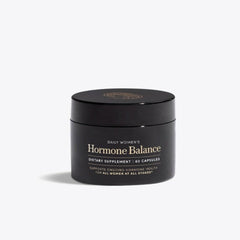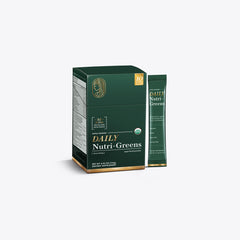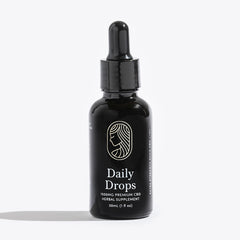 Vitamin C is one of the most common nutrients that people turn to for support of immune health, but its benefits for women’s health extend far beyond added support against occasional bugs. Research suggests it plays a multifaceted role in various aspects of well-being that are of specific importance to women.
Vitamin C is one of the most common nutrients that people turn to for support of immune health, but its benefits for women’s health extend far beyond added support against occasional bugs. Research suggests it plays a multifaceted role in various aspects of well-being that are of specific importance to women.
Bone health
Women are more susceptible to a gradual loss of bone mass due to normal hormonal changes, but Vitamin C can help. By aiding collagen synthesis, Vitamin C helps maintain bone mineral density <1>, and is one of the key nutrients for bone health. In fact, a study published in the American Journal of Clinical Nutrition found a positive association between higher dietary vitamin C intake and bone mineral density in postmenopausal women. <2>
Hormonal health and balance
 A lesser-known function of vitamin C is that it plays a role in the synthesis on may hormones, including progesterone, a key hormone in the menstrual cycle and pregnancy. Some studies have found that supplemental vitamin C can contribute to the maintenance of normal progesterone levels and cycling in women <3>, and some research even suggests that vitamin C might offer supportive benefits for fertility and early pregnancy health, although more studies are needed in this area.
A lesser-known function of vitamin C is that it plays a role in the synthesis on may hormones, including progesterone, a key hormone in the menstrual cycle and pregnancy. Some studies have found that supplemental vitamin C can contribute to the maintenance of normal progesterone levels and cycling in women <3>, and some research even suggests that vitamin C might offer supportive benefits for fertility and early pregnancy health, although more studies are needed in this area.
Iron Absorption
Vitamin C enhances iron absorption, which is crucial for women, especially during menstruation and pregnancy when iron needs are higher.
Skin health
 In addition to promoting collagen synthesis, vitamin C acts to protect cells from environmental damage that contributes to skin aging. Studies have shown a link between higher vitamin C intake and improved skin hydration and texture. <4>
In addition to promoting collagen synthesis, vitamin C acts to protect cells from environmental damage that contributes to skin aging. Studies have shown a link between higher vitamin C intake and improved skin hydration and texture. <4>
Urinary tract health
We all know that women are more prone to urinary tract irritation and infections (UTIs), but vitamin C might help create a less favorable environment for bacteria in the urinary tract, potentially reducing UTI risk and supporting a healthy bladder. <5>
Assuring adequate vitamin C through diet and supplements may have far-reaching health benefits for women of all ages. You can find Vitamin C in the Equilibria products Daily Women’s Hormone Balance and Daily Nutri-Greens!
References:
- Brzezińska O, Łukasik Z, Makowska J, Walczak K. Role of Vitamin C in Osteoporosis Development and Treatment—A Literature Review. Nutrients. 2020;12(8):2394. doi:10.3390/nu12082394
- Mangano KM, Noel SE, Dawson-Hughes B, Tucker KL. Sufficient Plasma Vitamin C Is Related to Greater Bone Mineral Density among Postmenopausal Women from the Boston Puerto Rican Health Study. J Nutr. 2021;151(12):3764-3772. doi:10.1093/jn/nxab291
- Henmi H, Endo T, Kitajima Y, Manase K, Hata H, Kudo R. Effects of ascorbic acid supplementation on serum progesterone levels in patients with a luteal phase defect. Fertil Steril. 2003;80(2):459-461. doi:10.1016/S0015-0282(03)00657-5
- Nutrients | Free Full-Text | The Roles of Vitamin C in Skin Health. Accessed February 6, 2024. https://www.mdpi.com/2072-6643/9/8/866?uid=65253c6d69
- Curto TM, Giovannucci EL, McKinlay JB, Maserejian NN. Associations between supplemental or dietary intake of vitamin C and severity of lower urinary tract symptoms. BJU Int. 2015;115(1):134-142. doi:10.1111/bju.12653



